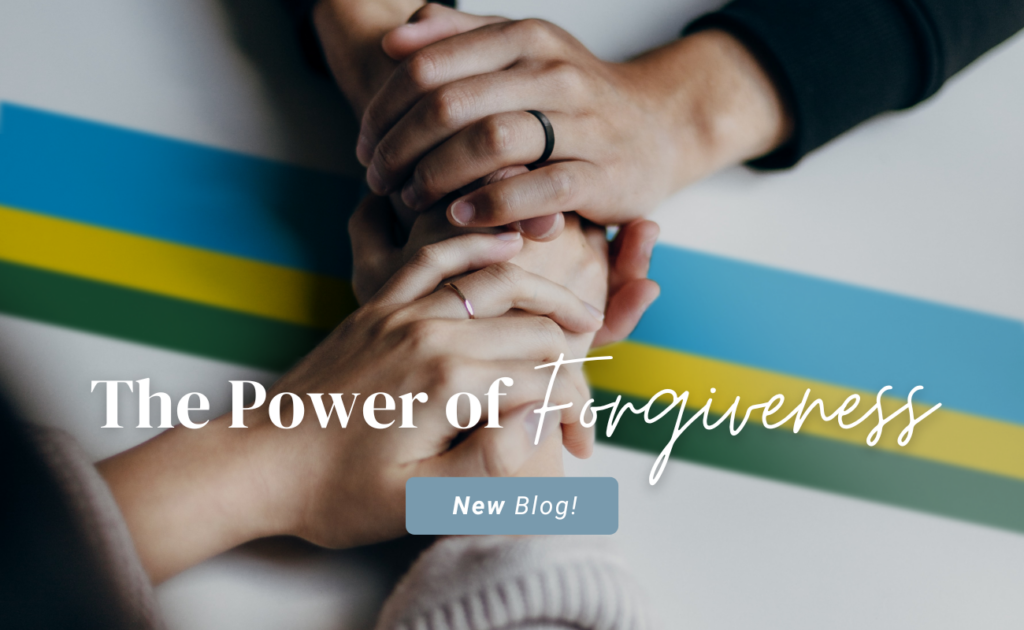A Tsunami Wave of Love
Through your natural eyes, you may have looked at some people on the news or in your circle of acquaintances as “unreachable”—as very difficult cases that make hope seem unrealistic.
In your theology, you probably know God can change any life. But these lives? Many of them look too far gone.
A woman came up to me after a conference session recently to tell me her story. She had been abused from the age of one onward. When she was twelve, she was trafficked by a satanic cult and horrifically abused over the next few years. She had lost eleven babies, some of them used as human sacrifices by the people exploiting her. She had struggled with mental illness, been on many medications, and gone through years of therapy.
As I listened to her story, I began to feel totally wrecked by the mental, physical, emotional, and spiritual torment she had experienced. I could not imagine going through everything she had suffered. It was just horrible.
I am not sure how she came to be at our meeting, but I remember that when I was preaching that day, I suddenly stopped in the middle of my message and told a story about how God had taken me back to a time when I was twelve years old and healed some deep childhood wounds with His love. I felt a little like I had done some rabbit chasing—that I’d gotten off track and interrupted my own message with a story that did not quite fit—but when this woman heard that story, she thought, Maybe love can take me back too. Maybe there was a time in my life before pain. She was probably in her forties now and had been tormented as long as she could remember. But maybe, she thought, God could take her back to a time before the darkness.
Suddenly, this woman felt as if she was being taken out of her own body. God took her back to a time as a little baby before the pain and began ministering to her there. She saw how He had seen her, accepted her, and adored her before she was in her mother’s womb. She saw who she was intended to be in His eyes. He began healing those deep, deep wounds.
As she was telling me this story, I could see her face change at this moment. I could see her countenance shift from darkness to light. Tears began to flow. She was glowing as she described how God had touched her.
“I knew I was changed,” she said. She hugged me and told me it was the first time in her life she had experienced love, felt valued, and had hope. Love had set her completely free.
At many points in her life, people could have looked at this precious woman and thought her situation was too difficult, she was too far gone, one of those hard cases, unreachable.
But God’s love reached her. There are no hard cases for God.
Love heals, restores, and makes all things new.
People we normally see as difficult cases are usually extremely broken hearts looking for wholeness. It does not matter if those hearts are inside a wounded and abused exterior, a terrorist, a crime boss, a homeless person on the side of the road, or a very religious Pharisee.
Everybody is searching for love. The hard cases often run from love or resist it because they have spent long years, even a lifetime, looking at evidence that authentic, supernatural love does not exist.
But their hearts know it does. Their hearts may be bound in extreme pain or bitterness, but they still know.
And one touch—or sometimes many repeated touches—from an ambassador of love carrying the authority of Heaven can break down walls, melt bitterness, and transform a life.
But an ambassador of love first needs to encounter that powerful love personally. And then we need to overcome any fear that stands in the way of expressing it.
Love in the Valley of Bones
Ezekiel lived among the Jewish exiles in Babylon. In a vision, God took him to a valley of dry bones. In other words, he was standing among very dead people—a place where revival looked impossible. A hopeless situation.
But God breathed hope into this situation by telling Ezekiel to prophesy life. That is what he did, and the bones began to move. Broken bones rejoined. Flesh grew. Dry bones turned into whole bodies.
But these bodies were still dead. So God told the prophet to prophesy again. He did, and God breathed life into these bodies, and they stood up—an “exceedingly great army” (Ezekiel 37:1–10). A generation of the dead came fully alive, ready to return to Israel.
This prophetic picture prepared captive Jews to hope and believe for a return to their homeland. It was given to Ezekiel at a low point in Hebrew history, when God’s very own chosen people were taken into exile and their holy city was destroyed. In His tender and compassionate love, Papa God wanted them to know that a time of restoration would come.
This prophecy demonstrates that the Babylonian captivity was not a hopeless situation. But the prophecy does even more than that. It also demonstrates that no situation anywhere is hopeless.
No generation is beyond revival. No darkness is immune to light.
No degree of death can overcome real life.
In your mission as an ambassador of love, you will find yourself walking among the remnants of brokenness. And it will be important for you to walk through them without fear, or at least without letting fear overcome you. You will need to replace your fear with love and hope. The heavenly environment within you will need to be stronger than the earthly environment around you. Your love will need to be greater than your fear—or your discouragement or your concerns or your questions.
You will come to valleys full of dry bones. There is no way to avoid that. When Jesus talks about fields being ripe for the harvest, this is what He has in mind. This is where your harvest field is.
Maybe you were looking for the easiest and best harvest fields. But that is probably not where the Holy Spirit will take you.
It is not a very good idea to ask for the best harvest fields, not how natural minds define “best” anyway. From the Father’s perspective, the best harvest fields are the most desperate. He wants His ambassadors of love to prophesy the breath of hope and love into hopeless and loveless places. These valleys are where the greatest harvest is.
The reason for this is simple. Dark places do not have a darkness problem; they have a light problem. Hate-filled hearts do not have a hate problem; they have a love problem. Deadened hearts do not have a death problem; they have a life problem. Do you see where this is going?
God wants to use you—to put His words on your lips to prophesy His purposes. As you prophesy His words, the Holy Spirit—the breath of God, the wind—will release love and life. And He will do this in the places you might think are the most unlikely. After all, a valley of dry, lifeless bones seems to be a pretty unlikely center of revival. Deserts are unlikely places for tsunami waves of love. But these are exactly the places that need revivals and love.
See other blogs
Receiving Daily Bread
Battle You Fight After the Battle You’ve Won
Want to stay connected?
Weekly bite-sized wisdom designed
to equip, educate, and empower you in the journey.



